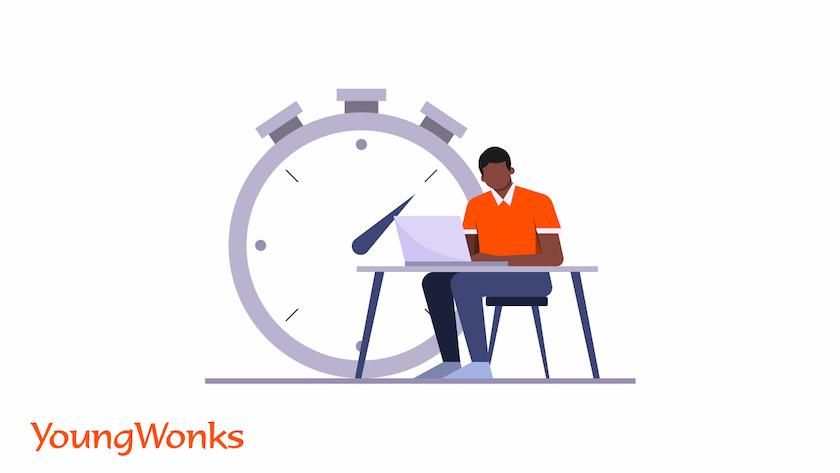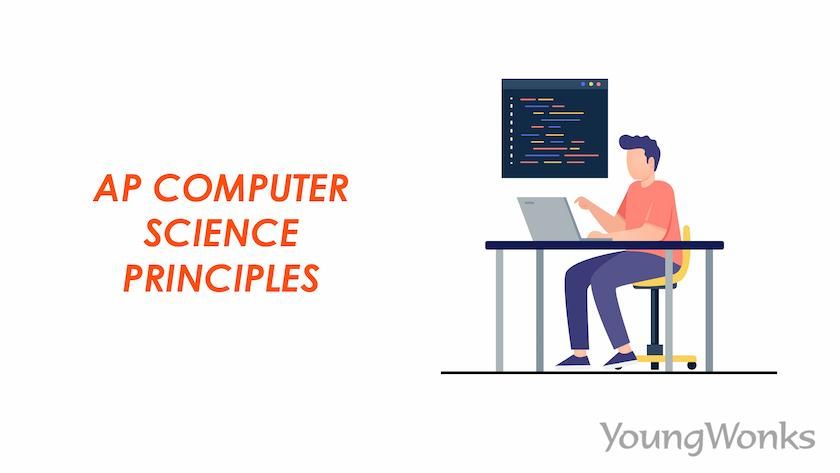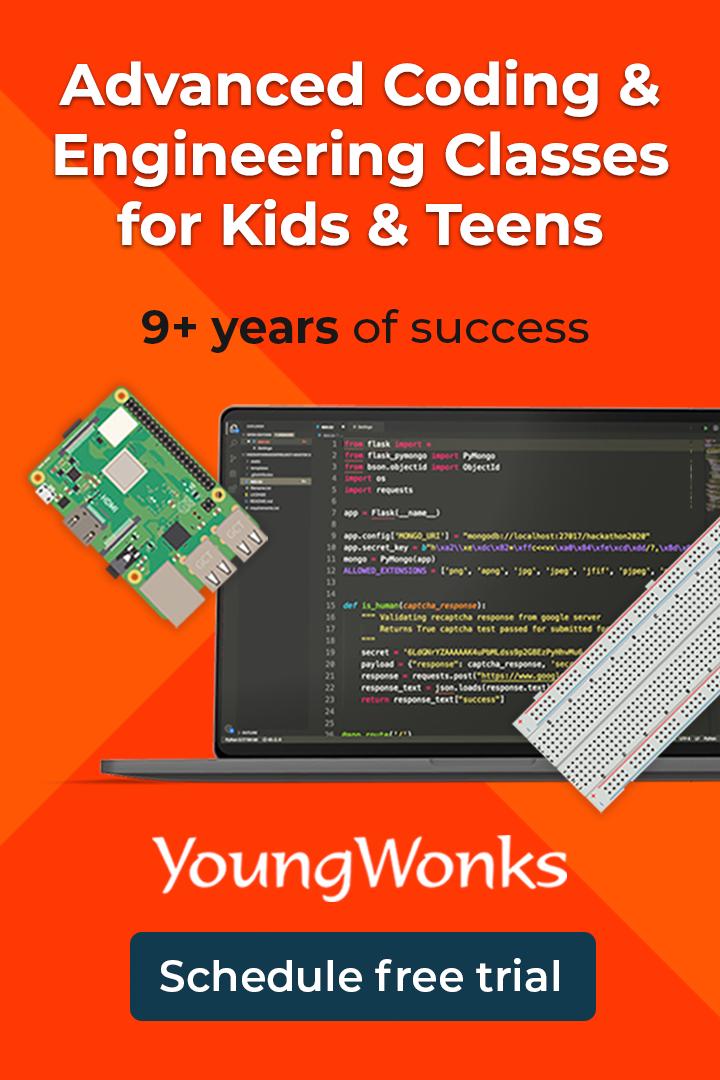Mar 06, 2023 By Team YoungWonks *
Introduction to AP Computer Science Principles
The AP Computer Science Principles exam is a comprehensive assessment designed to measure student achievement in the field of computer science. It assesses knowledge and skills developed through an introductory course, as well as analytical thinking and problem-solving abilities related to computing.
The goal of this college board exam is to provide students with a thorough understanding of computer science principles while preparing them for college-level work. While this exam may be suitable for beginners, it is important that those considering taking it have some basic knowledge about computers and programming concepts before attempting the exam.
Is taking AP Computer Science Principles hard?
With the right preparation and resources, anyone can succeed on the college board AP Computer Science Principles exam. By studying with practice questions, reviewing course materials, and utilizing online study guides, you will be well prepared to ace this important test. With dedication and hard work, you will be ready to tackle any challenge that comes your way!
Is AP Computer Science Principles worth it?
Yes! Taking the college board AP Computer Science Principles exam will give you an edge in college admissions and provide valuable knowledge about computer science principles. With practice questions, course materials, and online study guides available to help guide your preparation process, you can succeed in this important test with enough dedication and hard work!
What is AP CSP equivalent to?
The AP Computer Science Principles (AP CSP) exam is the equivalent of a college-level introductory course in computer science. It is designed to assess students' knowledge and skills in computer science principles as well as their analytical thinking and problem-solving abilities. Those who pass the course may receive college credit or placement in advanced courses, depending on the policies of their institution. By taking this exam, students gain a thorough understanding of computer science principles.
AP Computer Science Principles Exam Structure

The AP Computer Science Principles (AP CSP) exam is a two-hour, computer-based test that covers the core topics of computer science such as programming, data analysis, algorithms, and the Internet. The exam also includes topics related to computational thinking and problem-solving. To pass this end-of-course exam, you must demonstrate a mastery of both knowledge and skills related to the topics.
Format of Assessment
Section I: Multiple-choice questions
Students are given 2 hours to work on 70 multiple-choice questions. This multiple-choice section covers 70% of the exam score. Each question has 4 answer options to choose from.
Is it multiple choice or choices?
There are three types of questions in the multiple-choice section.
- 57 single-select multiple-choice questions
- 5 single-select questions with a reading passage about a computing innovation
- 8 multiple-select multiple-choice questions
Section II: Create Performance Task
During the Create Performance Task, students are encouraged to think outside the box and come up with a computer program that can either solve an issue, spark creativity or fulfill personal interests. This section covers the remaining 30% of the exam score and requires at least 12 hours of dedicated class time for students to complete. The students need to submit their Create Performance Task before the deadline. To check the deadline and exam dates, please refer to the following link:
https://apcentral.collegeboard.org/exam-administration-ordering-scores/exam-dates
What are the three parts to the create performance task?
The following are the three parts to the create performance task:
- Final program code
- A video that demonstrates the functionality of the program
- Written responses for all the prompts
The program code can be created independently or collaboratively. The video and written responses must be created independently.
What programming language is recommended for AP CSP students?
AP Computer Science Principles provides teachers the flexibility to select the programming language(s) that best suits their students' needs. Some of the teachers recommend students use the Java programming language to complete the Create Performance Task, while others recommend the JavaScript and Python programming languages. Students should note that HTML is not an acceptable programming language for this AP course.
What skills do students develop during the AP CSP course?
Students enrolled in the college board AP Computer Science Principles course get the following skills and benefits.
- They develop a wide range of technical and analytical skills. These include coding proficiency in languages such as JavaScript, Python, and Java, as well as knowledge of computational thinking and problem-solving.
- They learn the basics of data analysis to help them better understand how computer systems work and how to use algorithms to solve complex problems.
- They become familiar with internet components such as web servers, DNS servers, IP addresses, and different types of networks.
- They also understand privacy and security measures related to using the internet safely and ethically. They get to know about the current issues in computer science such as censorship, cybercrime, and data privacy.
- They can confidently discuss the implications of using technology and develop solutions for real-world problems related to computing.
Prerequisites for AP Computer Science Principles
To get the most out of their college board AP Computer Science Principles course, students should have a solid understanding of first-year high school algebra topics such as linear functions, how to compose functions and problem-solving strategies. Furthermore, students must familiarize themselves with the Cartesian (x, y) coordinate system to represent points on a plane accurately. Both students and their advisors must recognize that any intermediate computer science class requires a strong foundation of mathematical knowledge before attempting such coursework. Fortunately, no prior experience in computer science is needed for this exam.
What is taught in AP Computer Science Principles?
Those students who take Advanced Placement Computer Science Principles go through the following essential components.
- Computational Thinking Practices
- Course Content
Computational Thinking Practices
The computational thinking practices include those practices that form the basics of tasks in this AP exam. These practices should be developed by the learners during this AP program. Such practices include
- breaking down the problem into smaller parts
- observing patterns in data
- identifying the principles that generate such patterns
- developing a set of instructions to solve the problem
Course Content
The following are the five major areas / big ideas of study covered in this course.
- Big Idea 1: Creative Development
- Big Idea 2: Data
- Big Idea 3: Algorithms and Programming
- Big Idea 4: Computing Systems and Networks
- Big Idea 5: Impact of Computing
Creative Development - What is creative development? Why is creative development important?
The AP CS Principles course encourages creative development in students by teaching them how to think critically and apply their knowledge to solve complex problems. Through this course, students will be exposed to the fundamentals of programming and understand computational thinking. They will use various coding languages such as JavaScript, Python, and Java to design software and develop interactive programs.
Data Analysis, Algorithms, and Program Development
Students will learn the basics of data analysis to help them better understand how computer systems work, why big data is important, and how to use algorithms to solve complex problems. They will also be introduced to basic data structures, such as lists and dictionaries, as well as sorting, searching, and other related topics.
Internet and Networking
Students will learn about the different components of the internet, such as web servers, DNS servers, and IP addresses. They will also understand network security and explore topics related to cybercrime and data privacy. In addition, they will be exposed to different types of networks such as peer-to-peer networks and client-server networks.
Impact of Computing
Privacy, security, crowdsourcing and ethical issues are important parts of studying computer science. In today's digital age, user data is stored across multiple digital platforms, making it vulnerable to illicit access or misuse. With this in mind, the Advanced Placement CSP course equips learners with the skills necessary to think critically about the implications of computing and to take proper action when dealing with sensitive data. Students will get to know how the Internet works and also help them explore topics such as censorship, cybercrime, online privacy, and internet safety.
What is the impact of computing innovations?
The impact of computing innovations is profound and has changed the world in ways unimaginable even a decade ago. From autonomous vehicles to smart cities, from e-commerce to social networks, computing, and its related technologies are driving revolutionary transformations across all industries. Computing innovations are enabling faster, more reliable communication and facilitating more efficient collaborative workflows.
How to prepare for AP Computer Science Principles?
Students who take the AP Computer Science Principles exam should become familiar with coding languages. They should also practice using these languages to construct and debug programs. They should develop an understanding of basic data structures like lists and dictionaries, as well as algorithms, to help them solve problems more efficiently. To strengthen their mathematical foundations, students should review basic school algebra topics such as linear functions and the Cartesian plane.
Overall, both teachers and students need to understand that success in this Advanced Placement exam requires dedicated work and a solid understanding of both programming languages and computing principles. With the right approach, it is possible to achieve a high score in this exam.
Should I take AP CSP or AP CSA?
The answer depends on what kind of computer science experience and knowledge you are looking for. Both AP CSP and AP CSA courses help you get AP credits. If you are interested in learning Java programming language, then AP Computer Science A is likely the better option as it focuses more heavily on coding fundamentals and algorithms. However, if you're looking to gain an understanding of networks, data analysis, and internet security, then AP Computer Science Principles may be a better fit since the syllabus of this course covers these topics in greater depth than its counterpart does.
YoungWonks offers AP Computer Science Principles Coding Online Classes for Kids and Java AP Computer Science A Coding Online Classes for Kids. These prep programs are aligned with the AP CSP and the AP CSA curriculum of College Board. You can schedule a free trial class for the AP CSP class by clicking here and schedule a free trial class for the AP CSA class by clicking here. Please go through the Java for AP Computer Science A blog for more information on the AP CSA exam.
*Contributors: Written by Rohit Budania; Lead image by Shivendra Singh

